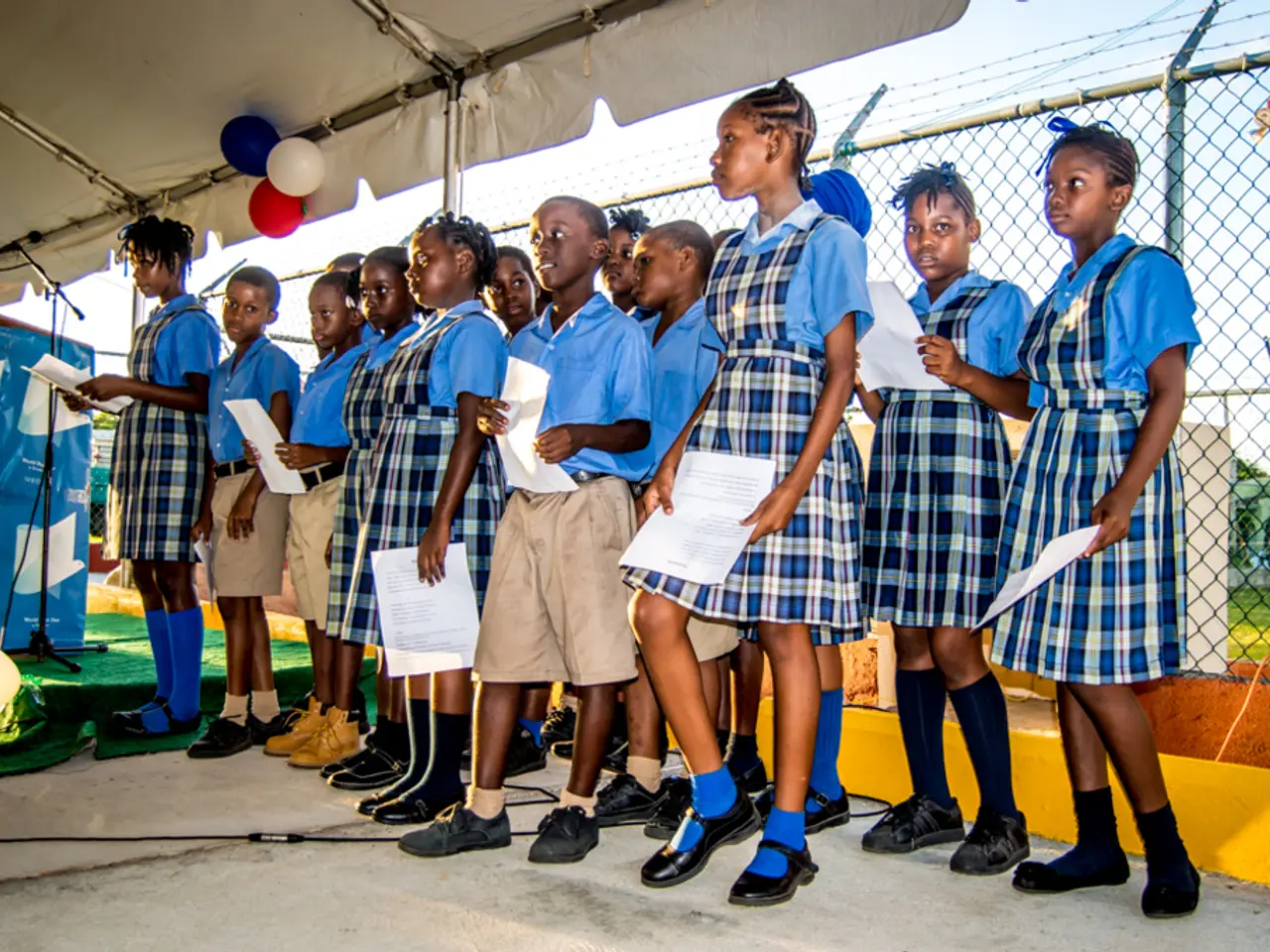Federal authorities pursue voter and election data from at least 19 states
Under President Donald Trump's administration, the U.S. Department of Justice (DOJ) embarked on an unusual campaign to acquire voter data and election-related information from states. The department sought copies of voter registration lists and extensive records from at least 19 states, including both Democratic and Republican administrations [1][3][4].
The stated purpose was to aid in enforcing federal election laws and investigating instances of voting or election fraud, particularly focusing on claims of voter fraud and noncitizen voting, narratives that had been actively promoted by Trump and his allies despite such fraud being extremely rare [1][4]. DOJ officials also proposed forging information-sharing agreements with states to bolster law enforcement efforts related to elections [1][4].
This shift marked a departure from the DOJ's traditional role, which historically focused more on protecting voting access rather than aggressively pursuing voter fraud claims. The scope and nature of these requests were described by election officials and voting rights experts as unprecedented, invasive, and causing alarm [1][2][3].
Some state officials, such as those in Colorado and Florida, partially complied by providing publicly available information. However, others reviewed or hesitated to fulfill requests due to concerns about privacy, the broad scope, and the potential misuse of data [2][3][5].
Critics warned that such data gathering could undermine public trust, risk the exposure of sensitive personal information, and even invite political or foreign interference with election systems [2][3][5]. Maine's Secretary of State, Shenna Bellows, went as far as saying that the administration's request oversteps the federal government's bounds and that the state will not fulfill it [1].
The Privacy Act of 1974 puts strict guidelines on data collection by the federal government, making the DOJ's requests for voter registration data more problematic, according to Justin Levitt, a former deputy assistant attorney general [1]. Becker, another expert, pointed out that there is nothing in federal law that compels states to comply with requests for sensitive personal data about their residents [1].
The DOJ's actions signal a transformation of the Justice Department's involvement in elections under President Trump, moving from its traditional role of protecting access to the ballot box to taking steps to crack down on voter fraud and noncitizen voting [1]. This shift has sparked controversy and raised concerns about the potential impact on election integrity and voter confidence.
References: [1] Associated Press. (2021, March 25). Justice Department seeks voter data from states, raising concerns. Retrieved from https://apnews.com/article/donald-trump-elections-2020-voting-rights-voting-and-registration-elections-2024-f17b13b341f911f77f39c0a6e9520368 [2] Brennan Center for Justice. (2021, March 25). Justice Department's Request for Voter Data Raises Concerns. Retrieved from https://www.brennancenter.org/our-work/analysis-opinion/justice-departments-request-voter-data-raises-concerns [3] Electronic Privacy Information Center. (2021, March 25). DOJ's Request for Voter Data Raises Concerns. Retrieved from https://epic.org/press_room/2021/3/25/dojs-request-for-voter-data-raises-concerns/ [4] The Washington Post. (2021, March 25). Justice Department seeks voter data from states, raising concerns. Retrieved from https://www.washingtonpost.com/politics/2021/03/25/justice-department-seeks-voter-data-states-raising-concerns/ [5] The New York Times. (2021, March 25). Justice Department Asks States for Voter Data, Raising Concerns. Retrieved from https://www.nytimes.com/2021/03/25/us/politics/justice-department-voter-data.html
- The unprecedented data requests by the DOJ under President Trump's administration raised concerns about privacy and potential misuse of data, bringing politics and general news into discussion.
- Policy-and-legislation debates were ignited, as critics argued that the DOJ's actions could undermine public trust, invite political or foreign interference with election systems, and risk the exposure of sensitive personal information.
- While some states complied with the DOJ's requests, others resisted due to concerns about privacy and the broad scope of the requests, shining light on crime-and-justice issues.
- The scope of the DOJ's intervention in elections, shifting from protecting voting access to enforcing federal election laws and investigating voting fraud, also revealed a significant change in the car-accidents that is, the usual course of action for the DOJ, raising questions about the impact on election integrity and voter confidence.





